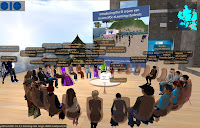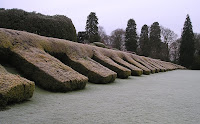
The USA's Project Information Literacy has published its latest research report
Lessons Learned: How College Students Find Information in the Digital Age, which describes results from a survey of 2,318 students carried out last Spring at six U.S. universities. There were also some follow-up interviews.
From a superficial skim I would say that in general the findings tally with those that have emerged from UK studies of student use of resources, e.g. the findings of the excellent JUSTEIS studies (see e.g.
http://www.dlib.org/dlib/june03/urquhart/06urquhart.html or
http://www.dil.aber.ac.uk/dils/Research/Justeis/JISCTop.htm ) and the report on the information behaviour of the researcher of the future (
http://www.publishing.ucl.ac.uk/behaviour.html ) e.g. a reasonably narrow range of resources often used, use of search engines, lack of use of librarians, the importance of the lecturer in guiding behaviour, continued use of "traditional resources". I will certainly have a longer look, especially as it teases out some of these issues in more depth. Project homepage at
http://projectinfolit.org/ and project report:
Head, A. and Eisenberg, M. (2009)
Lessons Learned: How College Students Find Information in the Digital Age. Seatttle: University of Washington.
http://projectinfolit.org/pdfs/PIL_Fall2009_Year1Report_12_2009.pdfPhoto by Sheila Webber: Library, Gregynog Hall, December 2009: I was there on Monday and Tuesday for a meeting about developing an Information Literacy Strategy for Wales: I will blog about that tomorrow!
 An article in School Library Journal publicises some online courses (using Moodle) for school librarians, provided by the Association of Library Service to Children (ALSC). They include Information Literacy - From Preschool to High School (6 weeks, from February 1—March 12, 2010) "Learn how to conduct information literacy instruction for all ages from preschool to elementary school to middle school and beyond". Cost is US $165, with discounts for members of ALSC and members of the American Library Association. The information page is at http://www.ala.org/ala/mgrps/
An article in School Library Journal publicises some online courses (using Moodle) for school librarians, provided by the Association of Library Service to Children (ALSC). They include Information Literacy - From Preschool to High School (6 weeks, from February 1—March 12, 2010) "Learn how to conduct information literacy instruction for all ages from preschool to elementary school to middle school and beyond". Cost is US $165, with discounts for members of ALSC and members of the American Library Association. The information page is at http://www.ala.org/ala/mgrps/














